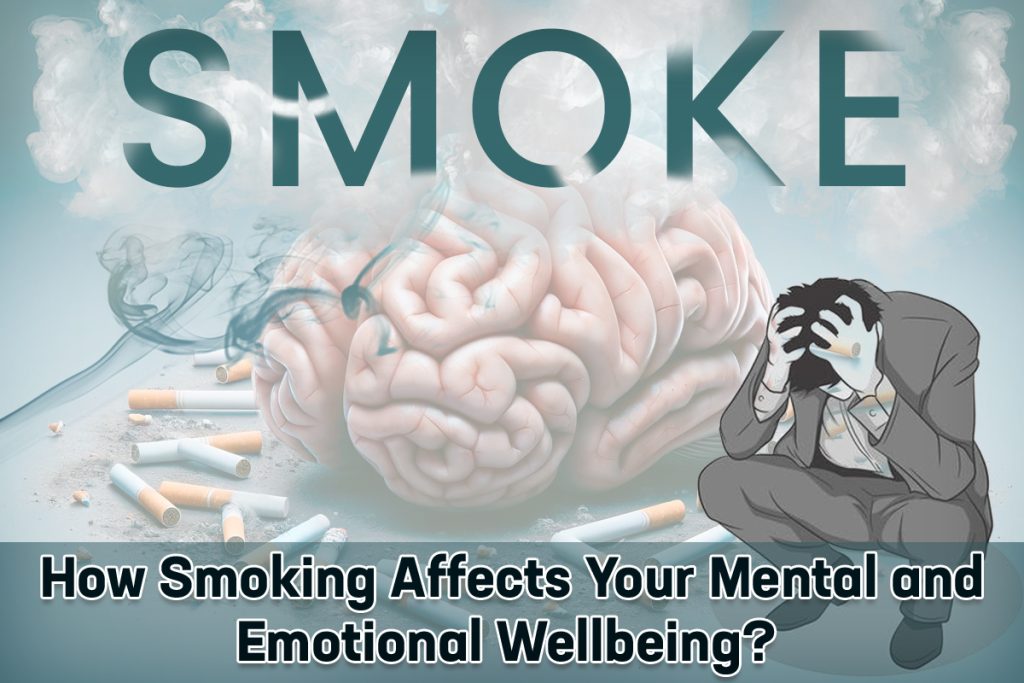The Initial Relief: Why I Started Smoking
Like many others, I turned to smoking during stressful periods in my life. At first, lighting up a cigarette gave me a sense of calm and helped me cope with anxiety. Smoking seemed like a quick fix that could reduce tension and improve my mood. The nicotine in cigarettes triggers the release of dopamine, a chemical that provides a short-lived sense of pleasure and relaxation.
The Cycle of Addiction and Dependence
However, what I didn’t realize at the time was how quickly my body became dependent on nicotine. The initial relief I felt turned into a constant need for more cigarettes to maintain that same sense of calm. Every time I tried to quit, the withdrawal symptoms—irritability, restlessness, and anxiety—pulled me back in. Smoking had become a crutch, and I felt trapped in a cycle of dependence.
-
Increased Anxiety and Stress
Ironically, smoking, which I once saw as a way to manage stress, began to increase my anxiety. The short bursts of relief were followed by heightened stress when I couldn’t smoke. Nicotine withdrawal symptoms, such as mood swings and restlessness, made me feel worse than before I started smoking. I realized that the more I smoked, the more anxious and stressed I became in the long run.
Emotional Consequences of Smoking
Smoking didn’t just affect my physical health; it took a toll on my emotional wellbeing as well. Over time, I noticed that my mood swings became more intense, and I struggled with feelings of guilt and frustration. The constant need for cigarettes, coupled with the knowledge that smoking was harming my body, weighed heavily on my emotions.
-
Emotional Dependence
Social and Mental Health Impacts
Smoking also had an impact on my social interactions and mental health. I found myself avoiding situations where I couldn’t smoke, which led to isolation and a sense of withdrawal from social activities. The stigma associated with smoking in certain environments also affected my self-esteem and made me more self-conscious.
Breaking Free from Smoking: A Challenge Worth Facing
Quitting smoking is one of the hardest things I’ve faced, but it’s also one of the most important steps toward improving my mental and emotional wellbeing. The road to quitting is filled with challenges, from overcoming nicotine withdrawal to breaking the emotional dependence on cigarettes. But as I work towards a smoke-free life, I can already feel the benefits—my anxiety is more manageable, my mood swings have lessened, and I no longer feel tied down by the need for a cigarette.
Conclusion:
FAQs:
How does vaping affect your social health?
Vaping can both enhance social interactions in vaping-friendly groups and isolate users in spaces where it’s stigmatized, impacting relationships and social life.
Does vaping cause depression and anxiety?
Yes, nicotine in vapes can increase anxiety and contribute to depression by disrupting the brain’s natural mood-regulating chemicals.
How does vaping cause depression?
Nicotine creates temporary mood boosts, but long-term use reduces the brain’s ability to produce dopamine naturally, leading to depression.
How does vaping affect your physical health?
Vaping can damage the lungs, cause respiratory issues, and increase the risk of chronic diseases like lung disease and cardiovascular problems.
Why does vaping cause anxiety?
Nicotine triggers anxiety during withdrawal, creating a cycle where users feel anxious without vaping, worsening over time.
What’s the impact of vaping on youth mental health?
Vaping in youth disrupts brain development, leading to increased risks of anxiety, depression, and long-term addiction.
Can vaping relieve stress?
Vaping may provide short-term relief, but it often increases stress due to nicotine dependence and withdrawal.
Does nicotine-free vaping affect mental health?
Yes, even without nicotine, vaping can create psychological dependence and reinforce unhealthy coping habits.
How quickly does vaping affect mental health?
Effects like anxiety and mood swings can develop within weeks of regular vaping, worsening over time.
Can quitting vaping improve mental health?
Yes, quitting reduces anxiety, mood swings, and improves emotional stability as the brain recovers from nicotine dependence.




Pingback: What Are the 4 Major Causes of Depression? - Blog By CyberMart.PK